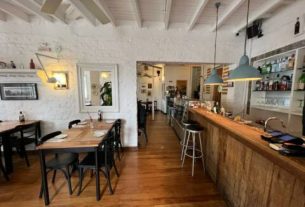How did a student at the public school of Belford Roxo, in Rio de Janeiro, end up in an exchange in the USA?
“The first bilingual public school in the Baixada Fluminense opened my eyes to the paths I could follow outside the classroom. It was another step in breaking the borders of my neighborhood. If in elementary school I had gone around the world with the books of Jules Verne, with the support of CIEP 117 I began to travel in the world of possibilities that I could explore within myself.”
He has an incredible story. And do not measure efforts or words to tell it – and thus encourage young people in steps similar to his. Learn the story of Lucas Martins Carvalho, 22, a student of International Relations and Politics at the University of the South in Sewanee.
It all started with the Global Citizens of Tomorrow Program, a project that rewards students who have good school performance with exchange scholarships to study abroad. The goal is to increase intercultural awareness and learning a second language. In the case of Lucas, the indication of the project came from his sociology teacher, in 2015. He tells the story in this video on his YouTube channel.
“In 2015, I wrote a mini-tea about my trajectory from Belford Purple to Chicago called The Pilgrim’s Peregrino. I remember writing in the third person, as one who still felt uncomfortable and a fish out of water as he expounded the peripheral reality of my city, with all its social difficulties. How to explain the context of the Baixada Fluminense, violence and precarious basic services, to a community in the United States that totally did not know our reality and who was used to sending her children, for example, to Harvard?
It was a time when he was still in the process of discovering the wealth that the community had offered. From how Belford Purple, by many considered the “end of the world,” had prepared him. Then came his definition as a pilgrim.
“The pilgrim of the United States was before the pilgrim who transited many different realities within the municipality of Belford Roxo itself. I always tried to understand each unique experience of the neighbors, family, friends, in the bus collector at 5 o’clock in the morning, in the girl with the heavy bag and the child on her lap waiting to board the crowded train, in the laughter of botequim, where time passed differently and in the happiness of the first day of school, where children were eager to return to school and review friends. These and other moments are an inspiration and strength to continue fighting for my development and the development of my community.”
He says that much of his trajectory and how he sees the world comes from the impact of the frames he has. “Many people think the examples are in distant places, outside the country. But sometimes they are outside the gate, very close. My first references came from the history of my family. My parents introduced me to the realities of a working class that saw in education a powerful tool to read the world. They taught me to read. Not just words, but people, emotions, realities, difficulties. Parents like that, without prestige (in the economic sense of the term), but who have taught me to question the things that are sold as great and to recognize the small things that are born giants, including the celebration of “we”. The love, affection and sense of belonging I have received from my family and other ‘mentors’ of life, such as teachers and other young people who were also carrying out various transformation projects, is a mirror of what I give back to society.”
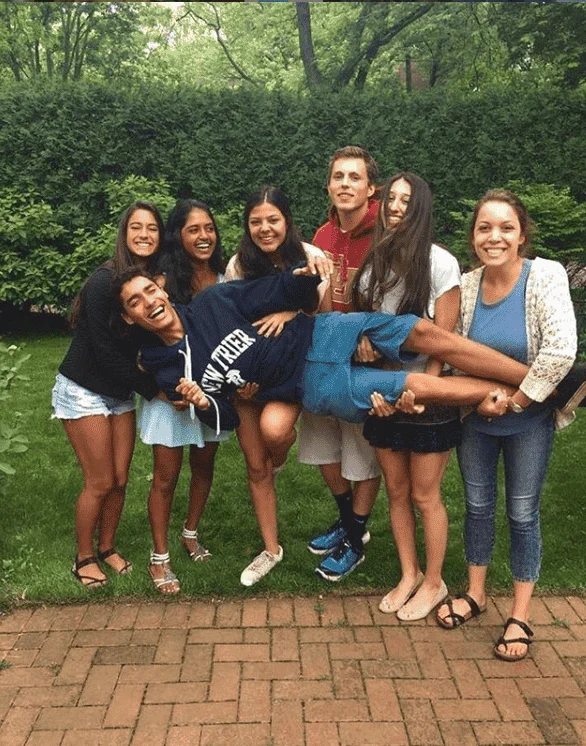
The school that changed Lucas’ life and opened the doors of the Rio-USA exchange
“The special factor of CIEP 117 Carlos Drummond de Andrade was to be the first bilingual public school (Portuguese-English) in the Baixada Fluminense. The school, located in Comendador Soares, was integral and had all the common subjects of a normal high school, but had the ‘extra’ of offering a greater workload in English and also subjects in the language, such as Mathematics and Geography. We had some more differentiated disciplines, for example, the Global Integration Project, which encouraged us to develop projects, develop actions outside school and work in groups. I also very much admire the way teachers encouraged us to read, not only in the sense of reading books, but of developing critical skills.”
In CIEP 117, he and his colleagues had activities such as classroom debates that gradually gave confidence to all students to build points of view and prepare them to perform in front of people.
“One of my most remarkable experiences was that of editor-in-chief of the school newspaper, Intercultural News. The newspaper was a family of young people extremely passionate about developing their skills in photography, writing, video editing, interviews, journalism, communication with the public and so on! At the time I thought it was a small project, but now I see how much contributed to my training. We were taking news of the school to the world and bringing the world to our community.”
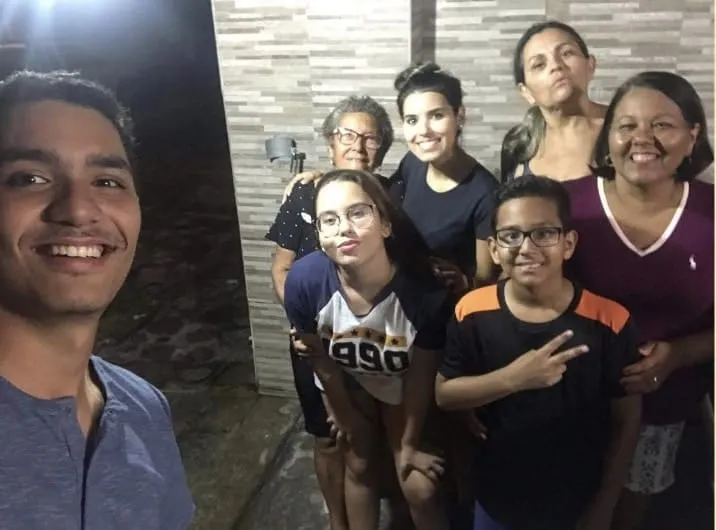
Exchange Rio-UEUA and the Global Citizens of Tomorrow Scholarship
“This bag was a watershed. That’s when it all happened to be divided between two worlds and countries; friends, families, experiences, longing – and so on!” Resume Lucas on the scholarship that gave him the opportunity of the Rio-US exchange.
Lucas did not expect to pass the selection process. “I remember, as if it was yesterday, that I signed up for the last day and was not ready, at least I thought not. Also, I remember I was moving to a new house and the whole situation was in chaos. My father would shout from the gate to help him with the change and I try to finish those highly introspective and philosophical newsrooms in the middle of it all. I think my dad’s pressure screaming must have helped, right? (laughs).”
The answer came while he was on the bus returning from school. “I remember I was in shock, I screamed inside and laughed on the outside. The program had not given the right date for the release of the results so I would enter the site all the time to see if it had any updates. The scene is very much alive. I pressed the phone on my chest with the result and the tears ran for joy because I had been approved – I came running home to tell the good news! The trip from school home had never been so long,” recalls Lucas.
The program supported him and his family, offering many guidelines during all phases of the exchange between Rio-USA. The scholarship covered all the costs of the trip, even with the bags, and also offered a kind of “messada” to help with personal expenses during the exchange.
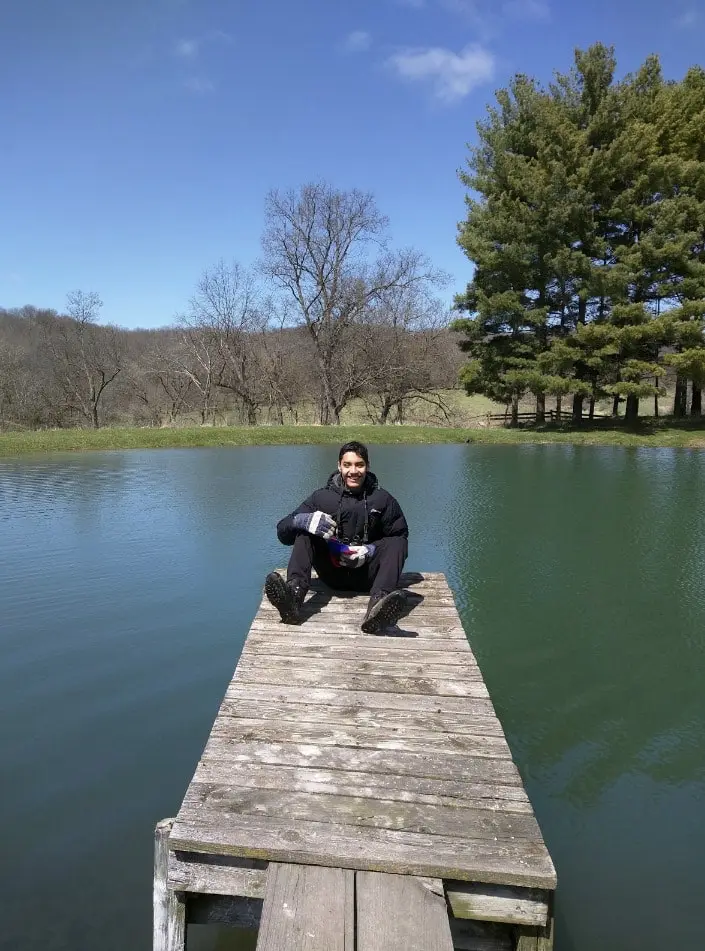
The Global Citizens of Tomorrow exchange has three selection stages. The first is online, in which you have about an hour and a half to answer questions of mathematics, English and write an essay in Portuguese on a topic that is given at the time. The theme of the last edition asked to discuss a problem in your community and how the student could solve it. In this first step, you also need to attach some personal documents, such as proof of residence and school history.
The second phase is simply the dissemination of the semi-finalists on the exchange’s own website, and then move on to the third phase, which is in person. In it, 15 semifinalists take a proof of proficiency in English (the intermediate level is recommended, because you will be studying in a regular school, not a language school).
The test is corrected on the same day and those students who reach the minimum score in English pass to the stages of group dynamics and individual interviews, which all happen on the same day. After all activities are finished, the results are disclosed on the social networks of the organization and on the exchange site itself.
“Look, I have to confess that this whole situation has been so new in my life that I haven’t even stopped to think too much of the real chances of being approved at every stage.”
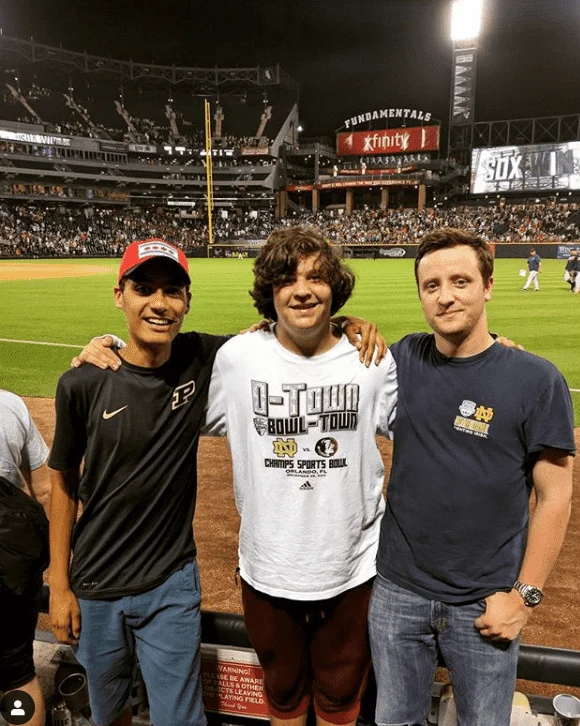
First exchange in the U.S. and the first time outside of Rio, in a different culture
When Lucas told the news at school, the reaction was very funny. “My teacher (who appointed him for the selection process) then, who was super excited, grabbed the microphone in the middle of the event and announced to the entire school that I would be leaving school for a year, for an exchange! First, silence, of those who leave the whole stadium quiet for a few seconds before the player hit the penalty and then the goal with the whole school coming to embrace me and congratulate me. I felt, again, welcomed by the entire school community”, he has fun remembering.
“I went to study at New Trier High School, one of the best high schools in the Chicago region and also nationally recognized for the high rigor of teaching and sports teams. Arriving in New Trier was a surprise. It was a school located in a very fortunate region of the city that placed the reality of Belford Roxo as an object of study. Two contrasting worlds, starting point for my search for explanations for social inequalities in Brazil.”
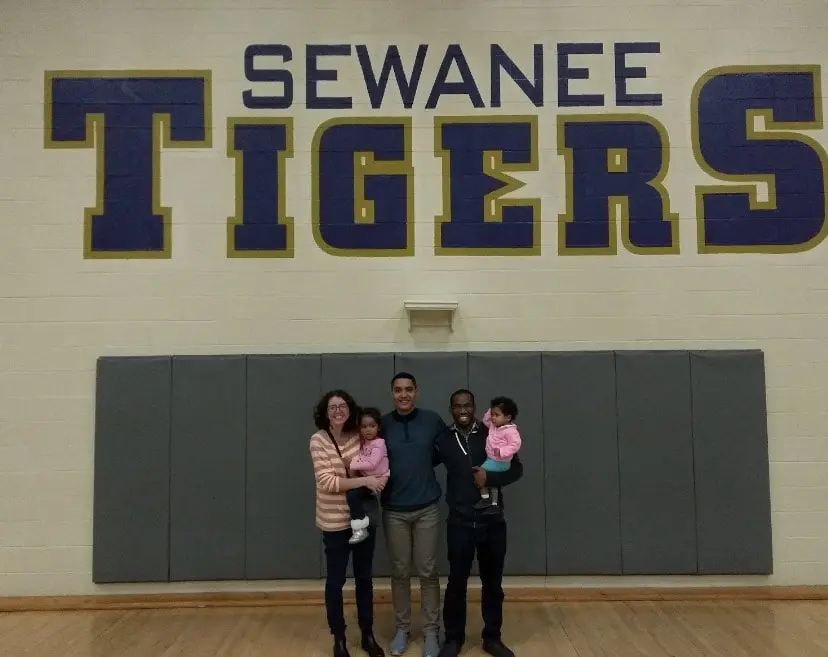
The school had a very appropriate infrastructure to serve all types of students. The classes were rigorous and required time outside the school for reading the materials. “We had proofs or quizzes (including surprises) every week, which forced us to maintain a steady pace of studies.”
He returned to Brazil at the end of June 2016, super excited to share the experience with family and friends at school. The desire to tell the news experienced in the Rio-US exchange were great. However, Rio was in a period of paralysis of almost five months in state schools. First, by a strike; then, by the Olympics. “Everything was very unstable – which was the first shock in my expectations. It was very strange, I felt the fish out of water in my own community. It was the same Luke, but different. I had a lot of Lucas pre-exchange, but a lot in me was no longer the same boy who had boarded a year ago.”
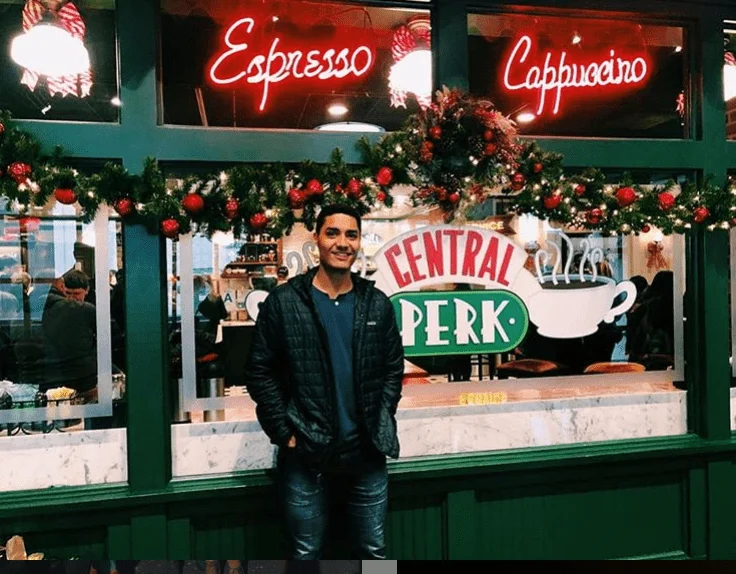
How Intercultural News: the opportunity to inform the community
Intercultural News, the first bilingual community newspaper (English-English) in the Belford-Plosh region, emerged in 2014 from the commitment and passion of 16 students who wanted to bring school to the world and the world to school.
Today, many of the newspaper members are at the university, attending Journalism, Graphic Design, Letters, International Relations, etc. “I am sure that the experience at Intercultural News helped me with writing, was fundamental in the selection process of the exchange and also with the return to Brazil, with the writing of ENEM. It definitely helped me relate better to people in different contexts, such as professional, school, online and on the streets.”
With Intercultural News, he saw that journalism has much of the potential to unite youth with different skills. It also to create something collective that touches the lives of people in ways he could not even imagine.
“Our editorial line focused on education and culture for the youth. Our main objective was to present these two fronts as an alternative of transformation in the life of the peripheries of Rio. We wanted to bring relevant agendas, criticism, but without losing the young personality. So we posted about opportunities.”
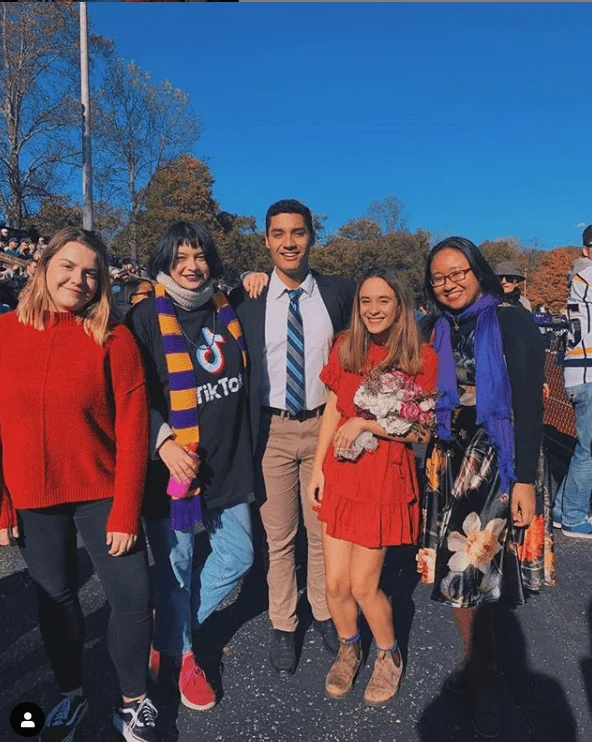
Return to Brazil and the beginning of higher education
“When I returned to Brazil, I did the ENEM for International Relations, and started studying at the Federal University of Paraíba (João Pessoa), where I stayed for two years. The move married my post-exchange and the desire to want to understand more the differences between the Brazilian regions. If Belford Purple was different from Chicago, I found it interesting to understand how internally different Brazil was. Paraíba is a home for me today. I will never forget the people I met who became family. João Pessoa is the city where the sun rises first (and hot) in the Americas, hospitality and love as well.
In August 2019 he was approved with a transfer grant to the University of the South, where he continues to study International Relations, but now with a concentration in the region of Latin America, the Caribbean and global capitalism.
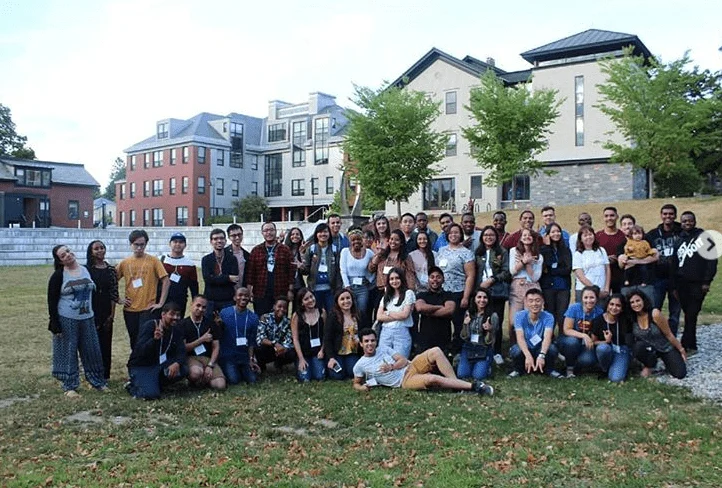
The risk of having to return home and work at university during the pandemic
In early July, a news story left foreign students studying in the U.S. with standing hair. U.S. President Donald Trump said he wanted to send back to the countries of origin all international students who were taking online classes at educational institutions in the country. Days later, under pressure from universities and students, the government backtracked on intention.
“It was a dismal and stressful news for the entire international student community in the United States. These students contribute to the country through science (including, many are ahead of the research by the Covid-19 vaccine here in the United States), research and innovation, cultural diversity and labor.”
There was a great mobilization on the part of the education sectors, mainly of large universities and with great capacity to influence politics, such as Harvard and MIT.
In addition, many students have started online petitions to revoke the decision. Silicon Valley companies in California (Google, Apple, Microsoft, Netflix, Twitter, etc.) that have interests in the innovation and labor of these students also pressured the government to backtrack. Lucas made a video at the time explaining the situation.
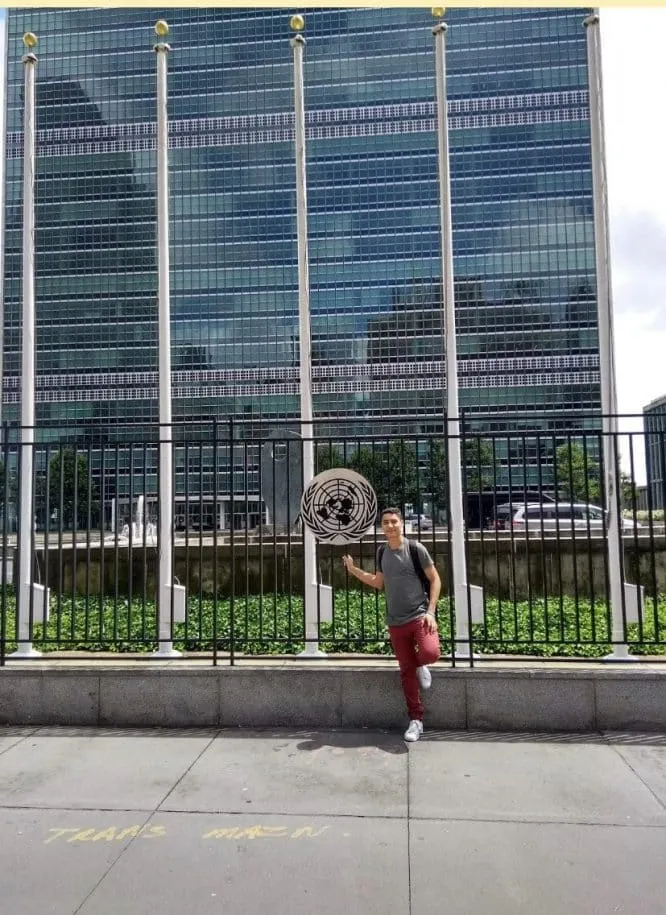
If on the one hand the government had the idea that the students were standing still, taking classes only online, this was not the case with Lucas. Even during the pandemic, work on campus has not stopped. Lucas is involved with a research project that analyzes social inequalities in the southern states of the United States in relation to demographic issues such as race, ethnicity, gender, income level and educational level.
“I am volunteering with the local farmers market and helping them sell their products, as demand has fallen sharply with the isolation measures and the closure of the city’s restaurants. Together with a friend from Rwanda, I have just become the director of International and Global Home, where I will coordinate a dormitory with eight international students from all continents of the world.”

Sign up for our newsletter and stay up to date with exclusive news
that can transform your routine!
Warning: Undefined array key "title" in /home/storelat/public_html/wp-content/plugins/link-whisper-premium/templates/frontend/related-posts.php on line 12
Warning: Undefined array key "title_tag" in /home/storelat/public_html/wp-content/plugins/link-whisper-premium/templates/frontend/related-posts.php on line 13




